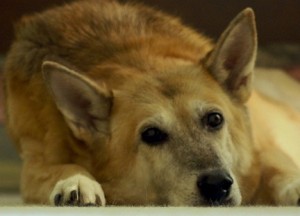 Whether you choose to look at philosophy, psychology, or semantics, there is little doubt these days that the words we use in describing the elements of our world have a tremendous influence over how we think and feel about them. In fact, the entire field of marketing and advertising is built on that very premise. Use the power of words and their meaning to lend their good influence to a product or to give you a bad impression of a competitor’s product. The power of words has also been acknowledged by therapists and counselors who tell us that the words we use in our “inner dialogues” are important to our self image and our perceptions of our world.
Whether you choose to look at philosophy, psychology, or semantics, there is little doubt these days that the words we use in describing the elements of our world have a tremendous influence over how we think and feel about them. In fact, the entire field of marketing and advertising is built on that very premise. Use the power of words and their meaning to lend their good influence to a product or to give you a bad impression of a competitor’s product. The power of words has also been acknowledged by therapists and counselors who tell us that the words we use in our “inner dialogues” are important to our self image and our perceptions of our world.
What about the words we use in relation to our dogs? Does it matter if we call it a “correction” or a “reprimand”? Does it make a difference if we call it a “cue” or a “command”? What about “bribe”, “reward”, “stimulus” (a term for the electric shock from shock collars), “red zone dog”, and others? Language and the specific choice of words can be helpful to us for discussions as dog trainers but it can also get in the way of good, clear training.
Fooling Ourselves?
Some of the terminology we use in training is harmless and a little definition can clear up meanings quickly. That allows trainers to exchange ideas productively. But there are other words and phrases that work on our own sense of the relationship we have with our dogs. It can have a profound influence on our sense of expectations and responsibilities.
In my opinion, I’m the responsible party from the moment I bring a dog into my home. That means if something isn’t working, it’s my job to figure out what to do about it. I suppose it’s only natural for me to flinch when I hear dog trainers use words or phrases that unfairly shift that responsibility onto the dog instead of owning it themselves. They may not mean to do it, it may be a phrase they heard someone use and it seemed appropriate at the time. But as any good life coach would tell you, what you tell yourself about your dog will very strongly shape how you perceive her.
Truth or Consequences
 One phrase people often use about their dogs makes the hair on the back of my neck stand up. “What I like best about Fido is that he’s an honest dog.” It is often used as praise for a dog who is predictable and steady, one not prone to unexpected behaviour. But the first thing that usually pops into my head when I hear this is “Compared to what? All of the other sneaky, lying dogs out there?” I’m sure if most dog owners really thought about it, they would agree that dogs are just not sophisticated enough to misrepresent themselves by outright lying. They just can’t be dishonest. It’s not in their power to do so.
One phrase people often use about their dogs makes the hair on the back of my neck stand up. “What I like best about Fido is that he’s an honest dog.” It is often used as praise for a dog who is predictable and steady, one not prone to unexpected behaviour. But the first thing that usually pops into my head when I hear this is “Compared to what? All of the other sneaky, lying dogs out there?” I’m sure if most dog owners really thought about it, they would agree that dogs are just not sophisticated enough to misrepresent themselves by outright lying. They just can’t be dishonest. It’s not in their power to do so.
I think most owners who talk about their “honest dog” are really expressing their understanding of their particular dog. They know what their dog will do in almost any circumstance and that’s a great thing! But doesn’t that speak more to a trainer who has taken the time and effort to learn about their dog, and to know what motivates her and how to predict her responses accurately? I think the trainer is the one being honest here, not the dog.
And what about those trainers who have “dishonest” dogs? Perhaps they haven’t invested enough in their dog to understand them. But every unexpected response becomes, what, a lie? How much more convenient to shift the responsibility for that lack of understanding to the dog. It would be easier for me to say “he’s not a very honest dog, so I struggle” than it would be to admit that I am not a very good trainer.
Tough Enough
Another term that has lost it’s meaning for me as I’ve come to learn more about behaviour and training is when trainers describe a dog as a “hard dog” or a “soft dog.” Frequently this is used to describe a dog’s endurance when in a training situation. A “hard dog”, for example, will continue to work with their trainer for many repetitions or exercises even in highly distracting environments. On the other hand, a dog described as a “soft dog” is one that requires lots of extra care when training. Perhaps the dog is hard to motivate or will not tolerate long training sessions. Perhaps it is easily distracted or will stop trying after only a few failed attempts. The general observation I have of people in dog performance sports is that “hard dogs” are good and that “soft dogs” are bad.
It’s interesting that some trainers have even gone to the extent to label entire breeds of dog as “harder” or “softer” due to their trainability using some standard training techniques. What’s even more interesting to me is that the growing popularity of positive training methods has turned some of those “soft dog” breeds into exceptional champions in many dog sports. So is it the dog or is it the trainer/training method that is at work here?
 My own experience tells me it’s the trainer and the training skills they bring to the table. Any dog that will keep working with you no matter what could be considered a “hard dog”. But if I take that to an extreme, I could also say that any dog that will work with you no matter what, is borderline obsessive compulsive about working! On the other end of the spectrum, any dog that does not display a certain amount of enthusiasm in working with their trainer is considered “soft.” Not all dogs are not highly motivated by food. Some dogs are highly motivated by the opportunity to play. Still other dogs are motivated by affection and social interaction. If a trainer encounters a dog that has a complex make up of what motivates that, the dog could be considered difficult to train; a “soft” dog.
My own experience tells me it’s the trainer and the training skills they bring to the table. Any dog that will keep working with you no matter what could be considered a “hard dog”. But if I take that to an extreme, I could also say that any dog that will work with you no matter what, is borderline obsessive compulsive about working! On the other end of the spectrum, any dog that does not display a certain amount of enthusiasm in working with their trainer is considered “soft.” Not all dogs are not highly motivated by food. Some dogs are highly motivated by the opportunity to play. Still other dogs are motivated by affection and social interaction. If a trainer encounters a dog that has a complex make up of what motivates that, the dog could be considered difficult to train; a “soft” dog.
Does this again shift responsibility from the human trainer onto the dog? When I hear someone say “Oh, I just couldn’t work with him. He was such a soft dog.”, all I can think is that this is a trainer who did not want to take the time to figure out what was needed to work with that particular dog. Many dogs share some general traits and will respond in a similar way in training situations. But a gifted trainer can spot the subtle differences in dogs and play to their strengths while minimizing their weaknesses. Thankfully, most dog owners will tend toward breeds they know and understand already. That makes training much easier and “hard” or “soft” doesn’t really come into it. To me, using “hard” and “soft” to describe a dog is more an indicator of the training skills of the trainer than the dog.
Saying Too Much
Every so often in this column I poke a “sacred cow.” There is an entire vernacular out there about dogs, especially in the community of dog sports. I honestly believe that most of that language evolved as a way to try to get some understanding about how to better work with our dogs. My learning about dog behaviour and behavioural science has radically changed the way I view some of the language we use about our dogs. Unfortunately, a lot of the catch phrases I hear work more as a way to relieve trainers of their responsibility and shift the problem onto the dogs instead.
I think that’s unfortunate. I have yet to meet a dog that didn’t want to work with me or be successful. I’ve had to work hard to earn the trust of some dogs. For others I’ve had to be very creative in how I approach the training game with them. Some like very short sessions and some respond best with lots of play breaks in between. Some dogs will work all day as long as I have food but are better off if we take a break after a few minutes. Still other dogs need to build their confidence in small increments over a period of weeks or months.
And so, to me a dog is not “honest”, nor are they “hard” or “soft.” They are just dogs. Unique in their own way and open to working with me if we can find a level to work on. That’s my responsibility, finding the level. I have the big brain, I can figure this out. But I can only do that if I get past the language that says it’s the dog’s problem and not mine.
Just something to think about.
Until next time, have fun with your dogs! 

Photo credits –
Willard – chadmiller 2006
Puppy – cote 2008
Lying Dog – Kim G. Appels 2006


So glad to have found your excellent and well written articles!
You speak my language. Thank you.
p.s. Forgot to say I love the accompanying photos!
Eric, another great piece, thank you. The power of words is not to be underestimated. Words can structure our reality as well as perception. Yes, you have poked a sacred cow, but keep poking!